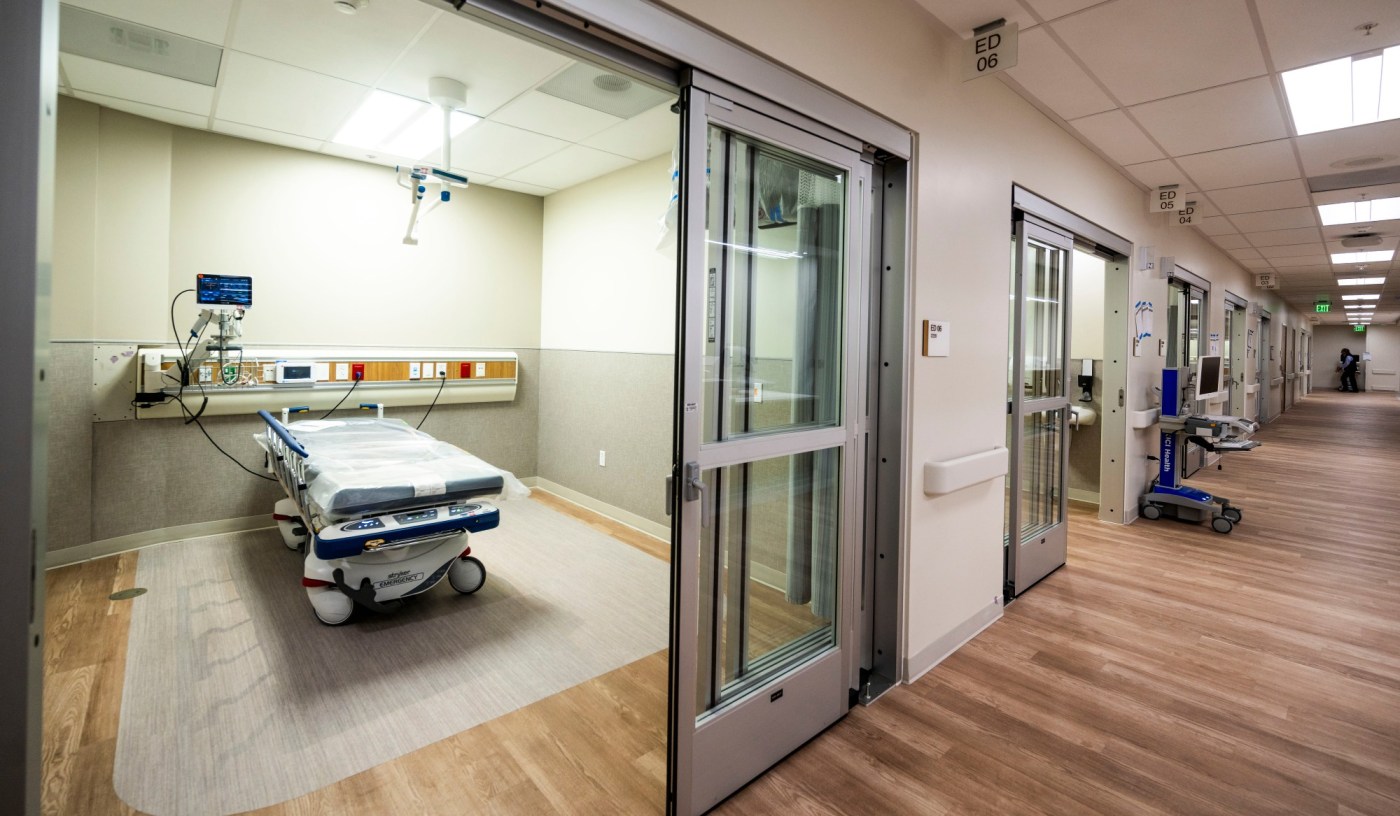UCI Health‘s newest hospital is slated to start admitting patients on Dec. 7, hospital leaders said, opening a seven-story, 144-bed facility that UCI calls the nation’s first all-electric acute care hospital.
The 350,000-square-foot building stands at the corner of Jamboree Road and Birch Street in Irvine and caps a $1.3 billion medical campus that includes a cancer center and ambulatory care building. Hospital officials say the new facility will serve residents of central, coastal and south Orange County and offer specialties including cancer care, cardiology, digestive health, neurosciences, orthopedics and spine, along with interventional radiology, catheterization services and advanced imaging.
The hospital and adjacent cancer center are connected by a massive surgical “megafloor,” spanning the width of three football fields, with operating rooms, sterilization areas and flexible pre- and post-op recovery space.
“This is a really historic thing,” said Chad Lefteris, president and CEO of UCI Health at a celebration Friday, Sept. 19, marking the completion of construction and being handed the keys for the health system’s second hospital, adding to its medical center in Orange. “We are finally returning to Irvine as a health system. We’ve been up on the Orange freeway for a while and now we’ve returned fully to meet the needs in Irvine and the central and coastal communities.”
The hospital will be the first of its size in the U.S. to run entirely on electricity.
“This is the first all-electric hospital of this size. No gas line coming into this facility,” said Joe Brothman, UCI Health’s director of general services. “By and large, everything runs through electricity. There’s no carbon combustion used to power heat or cool the hospital.”
Instead, the hospital is powered through a partnership with Southern California Edison. The only fossil-fuel-powered equipment on site is three emergency backup generators connected to a massive diesel tank, which Brothman said is enough to keep the entire campus running for at least 96 hours if power goes out.
UCI Health spokesperson John Murray said the move to all-electric will stabilize energy costs for the health system.
“When energy prices spiked a few winters ago, we were spending an extra million dollars on natural gas,” he said. “This will allow us to even out our budget so money is spent where it needs to be spent.”
Planning for the hospital started during the pandemic, Lefteris said, which meant design teams worked virtually, and with a pandemic mindset. Every inpatient room was built large enough to function as an intensive care unit if needed, effectively creating a 144-bed ICU. Though “not the way it’ll be used on day one,” Lefteris said, the option gets the hospital ready “when the next pandemic comes.”
“We’re built for this,” he said.
Private rooms, rather than curtained bays, make up the emergency department, which has 20 treatment rooms.
The rooms average about 250 square feet and many have floor-to-ceiling windows that look over the San Joaquin Marsh Reserve. Lefteris said the facility was designed to connect patients and staff with nature. There are outdoor garden spaces and a collection of hundreds of works by California artists will be displayed throughout the campus.
“A lot of design attention was also spent on blurring the lines between inside and out … to give our patients a moment to take a breath, to give our coworkers a moment to take a breath, look outside and take in these amazing views,” he said.
The hospital will also be home to UCI’s first facility designed specifically for bone marrow transplant patients, Murray said.
On Friday, guests, including UCI Health leaders and members of the hospital construction team, wrote notes to be placed in a time capsule set to be opened in December 2050.
The hospital completes the Irvine medical campus. Last year, UCI Health opened the Joe C. Wen & Family Center for Advanced Care and the Center for Children’s Health and the UCI Health Center for Autism & Neurodevelopmental Disorders. The campus also includes the Chao Family Comprehensive Cancer Center and Ambulatory Care.

















